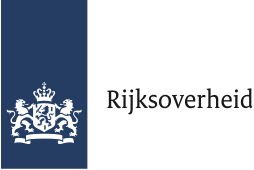Innovative technologies and new knowledge create possibilities to assess safety of chemicals with other methods than by animal experimentation. Are you interested to contribute to a new, innovative approach to carcinogenicity assessment? Then this PhD position might be perfect for you!
The Department
In this position you will be appointed at the Department of Innovative Testing Strategies of the Centre for Health Protection at the RIVM. In this department twenty colleagues (scientists, technicians and PhD candidates) work on human-relevant test methods and strategies to assess adverse health effects of chemical substances and materials. We are active in scientific committees that assess the applicability of these new test methods and approaches for regulatory purposes. We advice policymakers on topics like the transition to animal-free innovations and next-generation risk assessment. This project is a collaboration with Leiden University, where you will also defend your thesis at the end of the project. There, you will be affiliated with the Leiden Academic Centre for Drug Research, and specifically work in the research group of Prof. Dr. Bob van de Water. Your workplace will be at the RIVM as well as Leiden University. The exact distribution over time depends on various factors and will be a joint decision
More about the research project
The current standard method for assessing the carcinogenic potential of chemicals is the cancer bioassay in mice, which has several ethical and scientific limitations. It is time-consuming and many animals are needed. More importantly, the assay has a limited ability to predict human carcinogenicity. The goal of the project is to develop a new human-relevant, innovative approach for assessment of carcinogenic potential of chemicals. The focus of the project will be on carcinogenesis induced by non-genotoxic mechanisms. As a PhD candidate you will develop innovative test method(s) that can measure perturbations of mechanisms relevant to humans. The lab work will involve cell-based systems, including the use of induced pluripotent stem cells. Other assays, for example whole organism systems such as zebrafish embryos, may be involded as well. In parallel, you will develop networks of Adverse Outcome Pathways (AOPs) that capture important mechanistic key events that lead to non-genotoxic carcinogenicity. This will form the mechanistic basis for a testing strategy that combines existing and newly developed test methods. Ultimately, this testing strategy should be able to predict if a chemical is a non-genotoxic carcinogen. You will demonstrate the applicability of the testing strategy through case studies, using data from this project and data from other sources. You will publish and present your findings in scientific journals, conferences and to the public, and conclude with a dissertation.
Unique for this position
In this PhD project you can work on a topic of societal relevance using cutting-edge scientific approaches. You are supervised by an interdisciplinary team, with expertise in toxicology, induced pluripotent stem cells, bioinformatics, and chemical risk assessment. With your PhD project, you will bridge these disciplines, bringing together different sources of knowledge that will lead to new scientific insights.?You will get the chance to perform your research in two renowned organisations in the field of health and safety. You will benefit from their lab infrastructures and interdisciplinary knowledge. In this project you will work within the European funded PARC project (Partnership for the Assessment of Risks from Chemicals), with a focus on the development of an innovative approach to carcinogenicity assessment of chemicals. This will provide you with the opportunity to collaborate with other excellent (inter)national academic and regulatory partners within PARC and build your own network.
More information and apply
Are you interested in the PhD-position on a human-relevant approach for carcinogenicity assessment of chemicals? Send your application via the button below to Dr. Janine Ezendam, Head of the Department of Innovative Testing Strategies. Applications received by e-mail will not be processed. If you have any questions regarding this vacancy, you can contact Prof. Dr. Mirjam Luijten, +31 6 2549 7106.? Curious? You can find more information on our work, including publications and ongoing projects at the RIVM website. Information on research on non-genotoxic carcinogens is available here: Non-genotoxic carcinogens | RIVM.
The first-round interviews will take place on Monday, November 17 (11:00–11:45 or 16:00–16:45), Wednesday, November 19 (10:00–10:45 or 11:00–11:45), or Friday, November 21 (10:00–10:45). These interviews will be held at the RIVM. The second-round interviews will take place on Tuesday, November 25 in the morning at the LACDR in Leiden.

